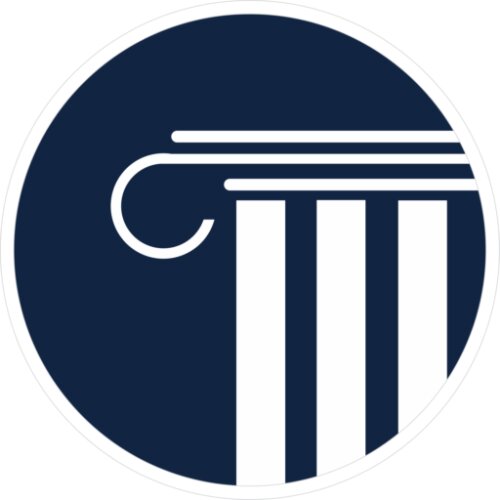Best Nursing Home Abuse Lawyers in Harare
Share your needs with us, get contacted by law firms.
Free. Takes 2 min.
List of the best lawyers in Harare, Zimbabwe
About Nursing Home Abuse Law in Harare, Zimbabwe
Nursing home abuse in Harare, Zimbabwe, is a critical issue that affects the well-being and dignity of elderly residents. This abuse can manifest in various forms, including physical, emotional, sexual, and financial abuse, as well as neglect. Legal frameworks in Zimbabwe, though still developing, aim to protect the elderly and vulnerable populations from such abuses, ensuring their rights and dignity are maintained. It is important for families and victims to understand these rights to seek appropriate legal recourse.
Why You May Need a Lawyer
There are several situations in which individuals may seek legal assistance related to nursing home abuse:
- Recognizing Abuse: Families may require legal guidance to identify and confirm instances of abuse or neglect.
- Protective Actions: Legal advice may be necessary to secure protective measures for a vulnerable individual.
- Filing a Complaint: Lawyers can help draft and file complaints with appropriate authorities or bodies.
- Seeking Compensation: Victims or their families may need legal representation to claim compensation for injuries or emotional distress.
- Criminal Proceedings: If the abuse involves criminal acts, legal help is essential to navigate the criminal justice system.
Local Laws Overview
In Harare, Zimbabwe, several laws and regulations are particularly relevant to addressing nursing home abuse:
- The Constitution of Zimbabwe: Protects the fundamental rights of all citizens, including the elderly, ensuring their right to dignity and protection from abuse.
- The Domestic Violence Act: Although primarily focused on domestic relationships, its provisions can extend to any form of abuse occurring in a caregiving environment.
- The Older Persons Act: Offers protection for the rights and welfare of older persons and outlines duties for their care.
- The Mental Health Act: Provides safeguards for the mentally ill, applicable to those in nursing home facilities.
Frequently Asked Questions
What constitutes nursing home abuse?
Nursing home abuse can be physical, emotional, sexual, financial, or due to neglect, involving harm or distress to the elderly.
How can I identify signs of abuse in a nursing home?
Common signs include unexplained injuries, changes in behavior, poor hygiene, or sudden financial issues.
How do I report nursing home abuse in Harare?
You can report it to local authorities, social services, or hire a lawyer for legal action.
What legal recourse is available for victims?
Victims can seek protection orders, file lawsuits for compensation, or initiate criminal proceedings against perpetrators.
Who is liable for nursing home abuse?
Liability can fall on individual caregivers, the nursing home management, or both, depending on the circumstances.
Can I sue a nursing home for negligence?
Yes, if the nursing home's failure to provide adequate care resulted in harm, legal action can be taken for negligence.
What compensation can victims receive?
Compensation may cover medical expenses, pain and suffering, or emotional distress related to the abuse.
Do nursing home abuse cases go to trial?
While some cases settle out of court, others may proceed to trial if a fair resolution isn't reached.
How long does it take to resolve such cases?
Resolution times vary, often depending on case complexity, available evidence, and the legal process involved.
Can a lawyer help gather evidence of abuse?
Yes, lawyers can assist in collecting necessary documents, medical records, and witness testimonies to build a strong case.
Additional Resources
For further assistance, consider reaching out to the following entities:
- Zimbabwe Human Rights Commission: A governmental body that can address human rights violations.
- Older Persons Board: Focuses on the welfare and rights of elderly individuals.
- Legal Aid Directorate: Provides support for those who may need legal aid due to financial constraints.
Next Steps
If you suspect nursing home abuse and need legal assistance, consider the following steps:
- Document Everything: Keep records of any incidents, including dates, times, and details of what occurred.
- Seek Medical Evaluation: Ensure the victim receives a thorough medical examination to document any physical injuries.
- Contact a Lawyer: Engage a lawyer experienced in elder law or personal injury to discuss potential legal actions.
- Report the Abuse: Notify local authorities and relevant organizations to ensure the situation is investigated.
- Explore Legal Options: Work with your lawyer to determine the most appropriate legal actions, which may include filing a lawsuit or seeking protective orders.
These steps can help protect the victim's rights and ensure legal measures are taken to address any abuse or neglect experienced.
Lawzana helps you find the best lawyers and law firms in Harare through a curated and pre-screened list of qualified legal professionals. Our platform offers rankings and detailed profiles of attorneys and law firms, allowing you to compare based on practice areas, including Nursing Home Abuse, experience, and client feedback.
Each profile includes a description of the firm's areas of practice, client reviews, team members and partners, year of establishment, spoken languages, office locations, contact information, social media presence, and any published articles or resources. Most firms on our platform speak English and are experienced in both local and international legal matters.
Get a quote from top-rated law firms in Harare, Zimbabwe — quickly, securely, and without unnecessary hassle.
Disclaimer:
The information provided on this page is for general informational purposes only and does not constitute legal advice. While we strive to ensure the accuracy and relevance of the content, legal information may change over time, and interpretations of the law can vary. You should always consult with a qualified legal professional for advice specific to your situation.
We disclaim all liability for actions taken or not taken based on the content of this page. If you believe any information is incorrect or outdated, please contact us, and we will review and update it where appropriate.












